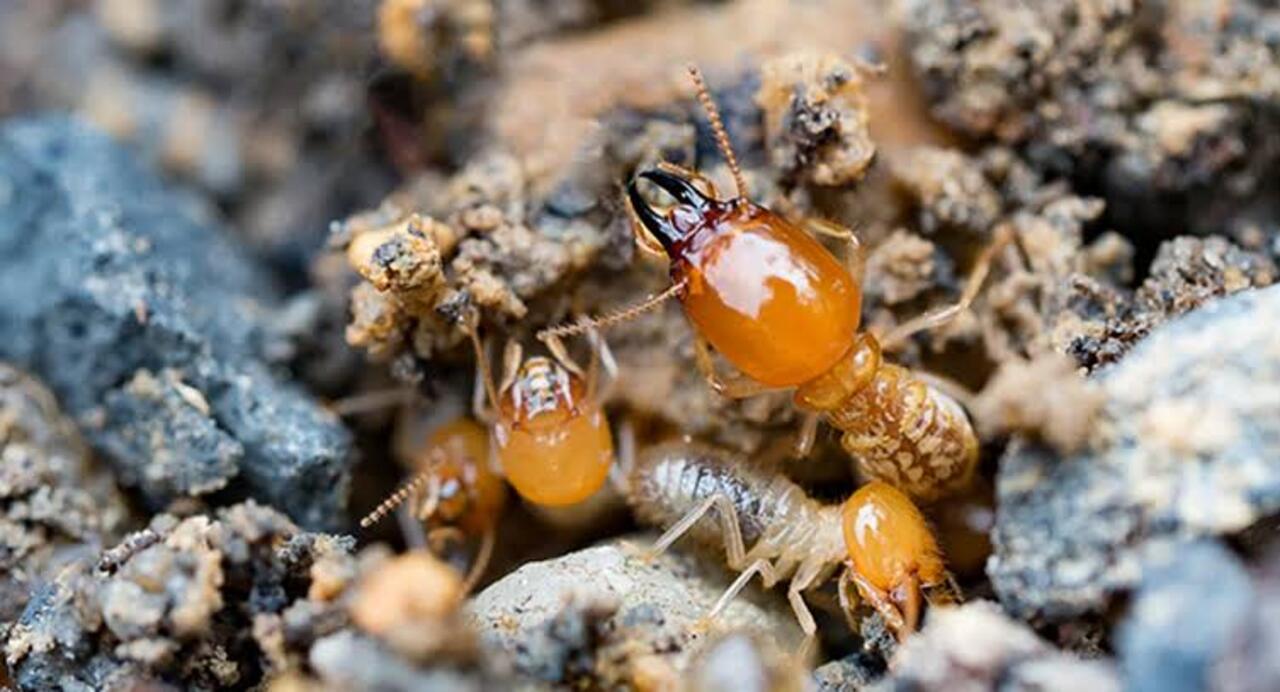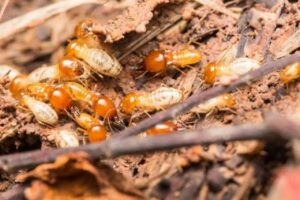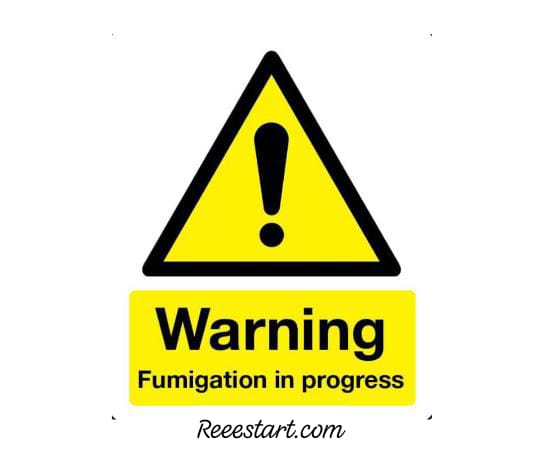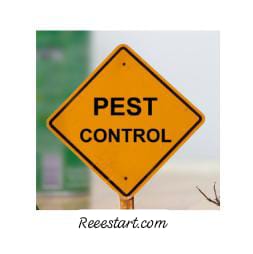Termites are among the most destructive pests, especially in warm and humid climates like Dubai’s. These tiny insects can cause significant damage to homes, eating through wooden structures and potentially compromising the safety and value of properties. Yet, despite the availability of professional pest control services, myths about termites persist and often lead to inadequate or misguided actions. For Dubai homeowners, understanding the facts about termites is crucial to protecting their properties. This essay debunks Common Anti-Termite Myths and offers practical advice for effective termite management
Common Anti-Termite Myth
Here, we are going to focus on Common Anti-Termite Myth:
Concrete Homes Are Termite-Proof
A widespread misconception is that homes built with concrete are immune to termites.
- While it’s true that termites cannot eat through concrete, this does not make concrete homes termite-proof.
- Termites are incredibly small and can crawl through even the tiniest cracks or gaps in concrete to reach wooden components inside, such as door frames, cabinetry, and flooring.
- In Dubai, many homes use a combination of concrete and wood, particularly for decorative elements.
- If termites find access to these areas, they can cause significant damage.
- Homeowners should ensure cracks in concrete are sealed and have regular termite inspections to mitigate risks.
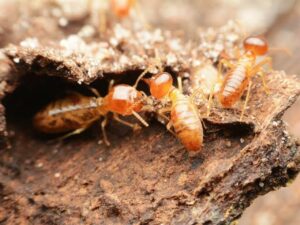
Visible Damage Means Active Infestation
Another Common Anti-Termite Myths is that termite damage is always visible.
- Many assume that if they don’t see damaged wood or termite mud tubes, their property is safe. In reality, termites are stealthy pests that can cause extensive damage while remaining hidden.
- They often work behind walls, under floors, or within wooden structures, making detection difficult without professional help.
- Dubai’s climate facilitates year-round termite activity, so periodic inspections by pest control experts are essential, even if there are no visible signs of infestation.
Termites Only Attack Old or Decaying Wood
Homeowners often believe termites are only attracted to old or rotting wood. While it’s true that termites prefer softer wood, they are not selective when searching for food.
- Termites can attack new, treated, or even painted wood if they find it accessible.
- This is especially relevant in Dubai, where new construction projects are ongoing, and wooden structures are frequently used.
- Pre-construction termite treatments and choosing termite-resistant materials are essential measures for protecting both new and existing properties.
DIY Treatments Are as Effective as Professional Services
The internet is flooded with DIY termite treatment methods, from using vinegar and essential oils to setting up homemade traps. While some of these may deter termites temporarily, they are rarely effective in eradicating a colony.
- Termite colonies often extend deep into the soil, making them difficult to reach with DIY methods.
- Professional pest control services in Dubai use advanced techniques like soil treatment, baiting systems, and termiticides to address infestations at the source.
- Relying on unproven home remedies can waste time and money while allowing termites to cause further damage.
Termite Infestations Are Seasonal
Many people assume that termites are only active during certain seasons, particularly the warmer months.
- However, in Dubai’s consistently warm climate, termites can remain active throughout the year.
- Subterranean termites, the most common type in Dubai, thrive in the city’s climate and can continue damaging properties regardless of the season.
- Homeowners should adopt a proactive approach to termite management, including regular inspections and treatments, instead of relying on the misconception that infestations are seasonal.

Common Anti-Termite Myths: What Dubai Homeowners Should Know
Termites Can Be Eliminated Permanently
A Common Anti-Termite Myths is that once a termite infestation is treated, the problem is permanently resolved.
- While professional treatments can eradicate existing colonies, they do not guarantee that termites won’t return.
- Dubai’s environment is highly conducive to termite activity, and untreated areas or nearby properties can become sources of new infestations.
- Implementing preventive measures, such as soil treatments, barrier systems, and regular inspections, is crucial for long-term protection.
Termite Barriers Are Unnecessary in Urban Areas
Some Dubai homeowners believe that urban settings are less prone to termite infestations, making termite barriers unnecessary.
- This is a dangerous myth, as termites can infest urban and suburban areas alike.
- With Dubai’s rapid urbanization, termites can easily migrate from one property to another, especially in connected buildings or areas with abundant landscaping.
- Installing termite barriers during construction or as a retrofit measure is a wise investment to prevent infestations, even in densely populated areas.
Termites Are Easy to Detect Without Professional Help
Many homeowners feel confident they can spot termite infestations on their own, but this is far from true. Termites are experts at hiding and often work in places that are not easily accessible, such as behind walls or under flooring.
Professional pest control companies use specialized tools, like moisture meters and infrared cameras, to detect hidden infestations. In Dubai, where termite infestations can escalate quickly due to the climate, relying on professional expertise is critical for early detection and treatment.
Insurance Covers Termite Damage
Another misconception is that homeowner’s insurance policies cover termite damage. In most cases, termite damage is considered preventable and is not included in standard insurance policies.
Dubai homeowners should carefully review their insurance policies and consider investing in termite protection plans or warranties offered by pest control companies. Being proactive can save significant costs in the long run.
Dead Trees and Firewood Are the Only Sources of Infestations
It’s a common myth that termites only come from obvious sources like dead trees or stored firewood. While these are indeed attractive to termites, the pests can also come from untreated soil, nearby buildings, or even wooden furniture brought into the home.
- In Dubai, where landscaping is common and imported wooden furniture is popular, homeowners should remain vigilant.
- Removing potential sources of infestation and treating soil and wood can help minimize risks.
Practical Tips for Dubai Homeowners
To combat termites effectively, Dubai homeowners should focus on prevention and professional management. Here are some actionable steps:
- Professional inspections at least once a year can help detect termites early.
- For new homes, soil treatments and barrier systems provide a strong defense.
- Opt for treated wood or termite-resistant alternatives during construction or renovations.
- Keep vegetation and mulch away from the foundation of your home, as they can attract termites.
- Regularly inspect your home for potential entry points and seal them promptly.
- Always choose licensed pest control companies with experience in dealing with Dubai’s unique termite challenges.
Understanding and debunking common myths about termites is the first step toward effective termite management. Dubai homeowners, facing a climate conducive to termite activity, must adopt proactive measures and rely on professional expertise rather than myths or DIY solutions. By staying informed and vigilant, homeowners can protect their properties from costly termite damage and enjoy peace of mind in their living spaces.

